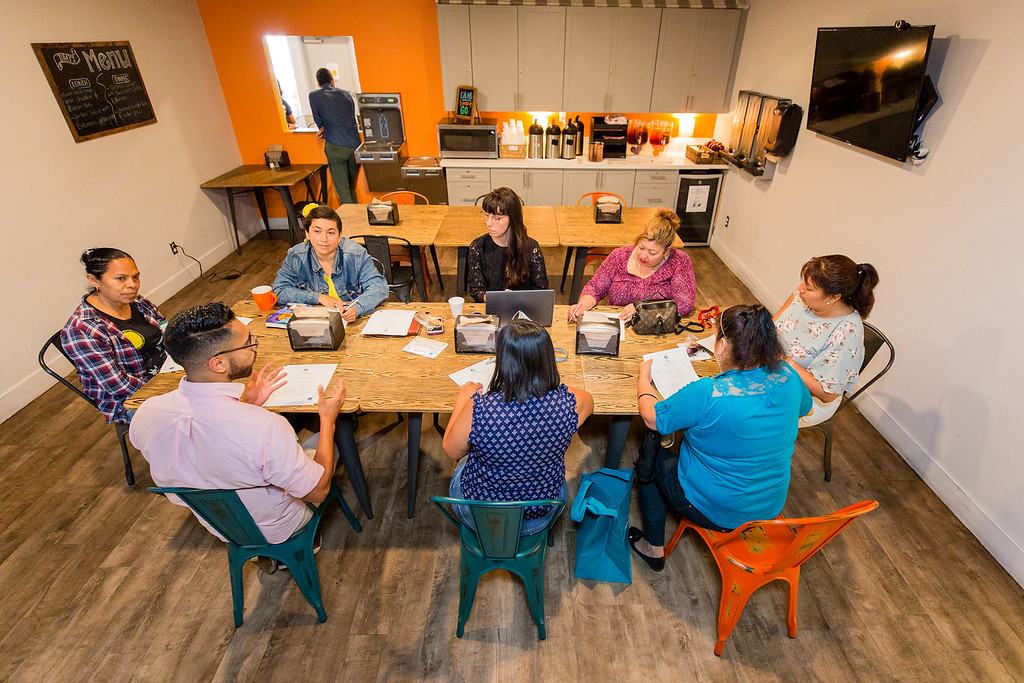This post is part one of a two part series that explores National Health Foundation’s efforts to advance justice, equity, diversity, and inclusion.
A recent blog post featured by the National Alliance for Ending Homelessness highlights a new approach for organizations to achieve their broader visions of social change. Authors Va Lecia Adams Kellum, Ph.D., President and CEO of St. Joseph Center, and Keith Anyon, Vice President of Administration of St. Joseph Center argue that to work towards racial equity in the communities we serve, we must start from within. By reexamining and transforming our own leadership practices and internal culture to match our vision for justice, we can reduce long-standing inequities for our staff and communities.
Many of the suggestions outlined by Kellum and Anyon align with NHF’s ongoing work to promote justice, equity, diversity, and inclusion (JEDI). Here at NHF, we view the path to justice, equity, diversity, and inclusion as an inward journey founded on a consistent learning and growth process and guided by an internal team of staff.
As one of NHF’s six core values, JEDI extends beyond cursory ideals. As Kellum and Anyon say, “We cannot only invite BIPOC folks to the table, instead we need to ensure the table is co-developed and that power is distributed equitably.”

In fact, NHF makes concerted effort to review every decision from workplace policies to recruitment practices through a JEDI lens. At the forefront of this work is NHF’s JEDI Council, a group of seven staff members who drive forward JEDI goals for the organization. In recent years, the JEDI Council has been responsible for establishing meeting norms to drive inclusion and create space for members of our team to voice their opinions or concerns. Additionally, we’ve taken steps to increase wages with the goal of diversifying our applicant pool, while supporting staff professionally through career pathways and skills development opportunities. Externally, we’ve established a diversity supplier program to promote an inclusive approach to procurement. Our JEDI practices strive to move beyond token gestures, but instead, aim to generate economic opportunity by spending our dollars within the communities we serve.
Led by NHF’s Chief People Officer, we’ve adopted strategic efforts to cultivate a diverse staff representative of the communities we serve. These include zero cover letter requirements, blinded reviews of resumes, and tailored interview questions to understand candidate’s lived-experiences and perspectives when interacting with BIPOC communities. NHF has put these processes into place to ensure diverse staff are representative of the communities we serve in perpetuity. Diversity of thought, background, and experience is vital to the work NHF does and these strategies cultivate this inclusive environment. With 85% of NHF staff identifying as BIPOC and 18% of staff identifying as LGBTQ+, inclusion is essential.
NHF’s JEDI values are essential to achieving our mission, and our practices begin with our leadership and Board of Directors. In part two of this series, we’ll cover the DEI efforts of our Board of Directors in learning and overcoming implicit bias, while setting the tone for determining Board inclusion, diversity, and representation.
If we are to truly understand and work towards overcoming deep-rooted racial and economic inequities, it is necessary to assess how we fair in our own organizations. We encourage you to read and share the article below with concrete steps, courtesy of the National Alliance for Ending Homelessness. To learn more about NHF’s JEDI initiatives, visit our webpage.
